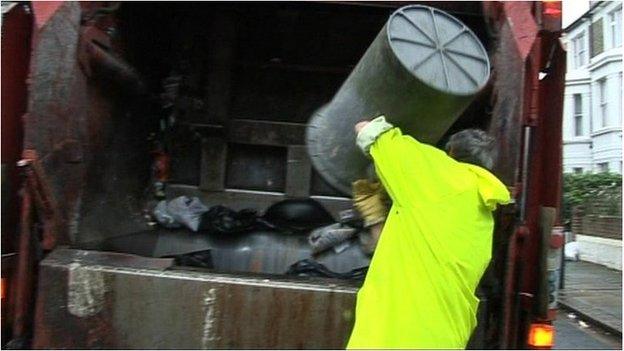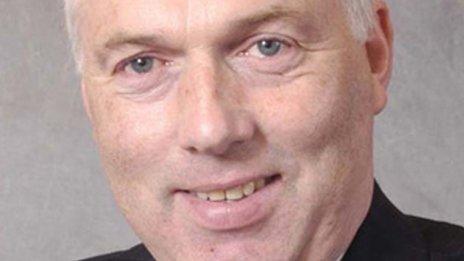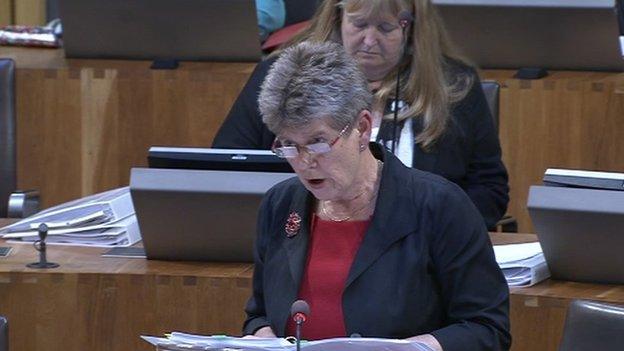Councils await funding cuts of up to 4.5%
- Published

The WLGA said the debate about what public services should be needed to be opened up
Councils across Wales will learn later how much money they will receive from the Welsh government next year.
Last week the Welsh government announced its local government budget was being cut by around 4%, for the second successive year.
Councils have warned local services could fail in the future and some become unaffordable and disappear.
Welsh ministers wrote to local authorities in June warning them to prepare for funding cuts of up to 4.5%.
Aaron Shotton, Welsh Local Government Association (WLGA) finance spokesman and Flintshire council leader, said last week services such as leisure centres, libraries, community facilities and day centres were at risk, external.
Welsh ministers distribute funding to local authorities according to a formula, taking into account factors such as the number of school pupils, the age profile and size of the local population.
But ministers sometimes apply a "floor" to a council's funding settlement, to set a minimum increase or maximum decrease.
'Growing crisis'
Last year, funding for Ceredigion, Denbighshire and Powys fell by 4.6%, but Newport dropped by only 1.2%.
A month ago, every county council leader in Wales called for an urgent debate on budget cuts, claiming Wales faces a "growing financial crisis".
The WLGA claimed the 22 councils need to save £900m by 2018 from their budgets.
BBC Wales understands local authorities had financial reserves worth a combined £1bn at the end of the last financial year.
While the vast majority of the money had been earmarked for spending already, Welsh government sources say there are questions about why there are such big variations between councils, with some reserves worth more than a fifth of their annual budget.
Gwynedd council leader Dyfed Edwards said councils were being asked to increase spending on education at the same time as reducing their budgets.
"I think that's what you call an oxymoron," he said.
Steve Thomas, chief executive of the Welsh Local Government Association (WLGA) suggested protecting spending on areas such as education and social services could risk wiping out services in other areas.
He said by the 1930s Wales had had a network of public toilets.
"We're in danger 100 years later of seeing public toilets wiped out," he told BBC Wales.
- Published8 October 2014

- Published5 October 2014

- Published30 September 2014

- Published9 July 2014
